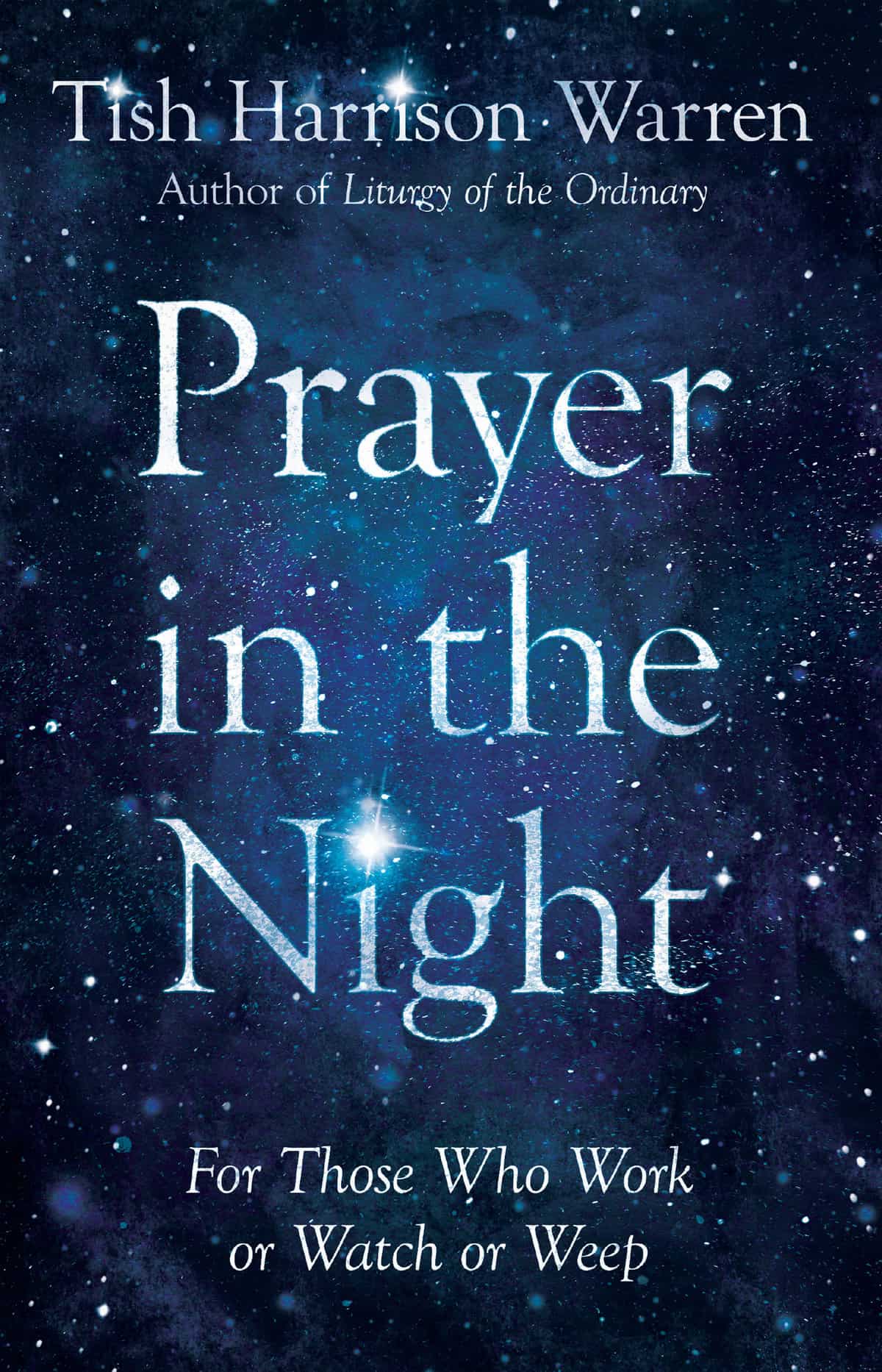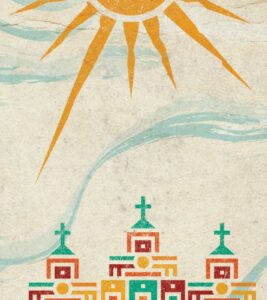Editor’s note: Tish Harrison Warren’s Prayer in the Night for Those Who Work or Walk or Weep came out earlier this year, but as we get closer to the Thanksgiving and Advent seasons and consider all that God has done and will continue to do, we wanted to share an excerpt from her book.
 We are dust and to dust we shall return. But first, we work. We leave our small mark on the world. For the most part it will soon be erased, as surely as my daughters’ chalk drawings on the sidewalk will vanish with one hard rain. But our work matters, just as those chalked butterflies and rainbows matter to me and to my daughters. Our work—whether paid or not, drudgery or a joy, skilled or common—makes a difference. Done well, it adds truth, beauty, and goodness to the world. It pushes back the darkness.
We are dust and to dust we shall return. But first, we work. We leave our small mark on the world. For the most part it will soon be erased, as surely as my daughters’ chalk drawings on the sidewalk will vanish with one hard rain. But our work matters, just as those chalked butterflies and rainbows matter to me and to my daughters. Our work—whether paid or not, drudgery or a joy, skilled or common—makes a difference. Done well, it adds truth, beauty, and goodness to the world. It pushes back the darkness.
Most of the prayers of the nighttime prayer of Compline emerged before electricity and 24-hour connectivity. When the world was lit by firelight, the majority of nighttime work was the work of crises—emergencies, grave illness, defense against intruders or armies. But that wasn’t all the work done at night. From time to time, the poor and working class would rise midway through the night to relight fires or attend to other household tasks. The learned would study by flickering candlelight. Midwives guided new life into the world. Mothers woke to nurse or quiet their children. And monks would wake for their work of prayer.
Our work weaves us together as a human race, dependent and interconnected. All of us rely on the work of others. We count on those who are often nameless and invisible to us. One Anglican night prayer reads: “Watch over those, both night and day, who work while others sleep, and grant that we may never forget that our common life depends upon each other’s toil; through Jesus Christ our Lord.”
Our life together depends on one another’s toil. We need each other. We need others to do their work well. One gift of vulnerability is that we are not sufficient alone. We wouldn’t have made it past day one by ourselves. We are made to rely on others, and our ever-present neediness ensures that we must, whether we want to or not. None of us will ever be purely self-reliant. Bootstraps be damned.
Even before the first minor chord sounded in humanity’s song, when things were as they should be and we knew no suffering or pain, we still were not self-sufficient. It was not good for man to be alone. In our purest humanity we were interdependent and needy. We relied on God and on other people. And we worked. We worked together even—our common life depended on each other’s toil.
There are many paintings of Adam and Eve in a garden, blissful and naked, but very few portray them working in any way. It’s as if we can’t imagine work without drudgery, as if paradise necessarily excludes office meetings and household chores (admittedly, Adam and Eve could skip out on laundry). But even in perfection, Adam and Eve worked.
We are made to share a common life of work and creativity. And once all things are redeemed, we will not suddenly become Supermen and Superwomen who are autonomous and self-sustaining. We will never not be needy. We will never not need God and one another. Our telos is community, not self-sufficiency. It’s a feast, a life together.
Even now, we work toward this vision of redemption. We weep and watch, but we don’t stop there. We don’t take a passive posture toward the renewal of the world. Our shared human vulnerability calls us to action—to work. Our response to human vulnerability is always, in part, to seek to mitigate it, to make the world, however slightly, more peaceful, safe, beautiful, just, and truthful.
Through our vocations, we seek to love others in embodied and practical ways. We do this through our jobs— the call to alleviate suffering births many of our vocations, from parenting to fighting fires to teaching yoga, from politics to medicine to social work. And we do this as a church. For two millennia, Christians have formed hospitals, orphanages, homes for the disabled and poor, schools and universities. Beyond this, we care for those who are hurting in our daily life. We take care of one another in thousands of quiet, unsung ways.
But good work in the darkness—in the face of our vulnerability and weakness—is not only done out of our desire to alleviate suffering. It also arises from our desire to defy it, to make beauty from ashes.
Prayer itself is a kind of work and it sends us into our work in the world.
For the Christian, the postures of prayer and work are interwoven: ora et labora, pray and work. We work as prayer and pray as work. And our prayer and our work transform each other.
Yet we can falsely pit prayer and work against each other, as if one makes the other unnecessary. These days we tend to understand accomplishments as either our work or God’s, but never both. We’ve come to subtly believe that our agency is therefore in competition with God’s agency. We believe the lie that goodness, truth, beauty, healing, and justice are hewn solely through our own effort or that they are God’s to grant, without any action on our part. God therefore is useful as a miracle worker or a Hail Mary pass. He’s a wizard we ask to zap the world with signs and wonders when we aren’t up for the job. In this way of thinking, though we may sometimes call on God to act when we’re feeling desperate, we are mostly on our own. In the warp and woof of life, in the laundry and law-making, the finance and forestry, the medicine and mothering, the ditch-digging and diplomacy, God is largely absent.
But if God is behind, under, and throughout all good work and every moment of our lives, prayer is never a merely “spiritual” act of piety, a few feet off the ground, divorced from the real work of the world. When we pray for healing or redemption or peace or justice, we are praying for those who work—for scientists, doctors, poets, potters, researchers, retail clerks, farmers, politicians, and pilots—these actual and limited men and women through whom God is bringing renewal.
Praying this way changes how we work. We can take up our daily work knowing that through it we participate in the eternal work of God. We can take up our vocations not simply to find success, get a paycheck, or make a name for ourselves, but from a place of rest in God.
Adapted from chapter 5, “Those Who Work,” of Prayer in the Night by Tish Harrison Warren. Copyright (c) 2021 by Tish Harrison Warren. Published by InterVarsity Press, Downers Grove, IL.


